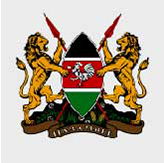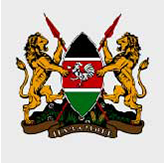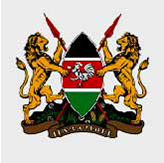
Growth in agriculture… is there anything cool for the youth?

“Weri gi tol go kanyo. Ngimawa ochuno moingo rech.” Loosely translates to; Leave the nets there. Our lives are more important than the fish.)
The boat was tossed about and began filling with water. My teeth rattled and my hands became numb from the gnawing cold. Before I could point out the two ferocious crocodiles floating toward us, a huge wave tossed the boat to the shore.
My friends and I ran through the now flooded shore and sought refuge in a cave-like boulder. We huddled in a corner and stared into the darkness as the cold bit through our bones.
I could not see our hut. I knew that the usual hassle was on. I could picture my mother and eight siblings moving buckets and sufurias from one point to the other, trying to gather the drops of rainwater that fell through the grass-thatched roof.
I was sure that by this time, the earthen floor was no different from the muddy lake shore. The chinks on the walls were probably deep fissures by now, and the door barely hanging on to a loose frame. Crouching in the cold, I imagined my mother and siblings huddled in a corner just like Onyango, Okello, and I.
“Look at him, a dreamer. You cannot run from your destiny. This is our way of life,” Okello said to Onyango, speaking about me. They both burst out laughing. I knew what Okello meant.
The three of us had been friends since our traditional initiation after completing sixth grade. The greatest difference between us, however, was our priorities. While Okello and Onyango lived by the community’s expectations, I sought ‘Western’ education as many referred to it.
After circumcision, young men were expected to fish, the community’s way of life, and take up manual labour to fend for their families. They were also expected to marry and start their own families. The only education prescribed by culture was that which was taught by elders.
Okello’s taunt led me to bittersweet memories of my primary school days. The village elders would not let a ‘wuoyi matin’ (small boy), disgrace the Dholuo way of life. I was once summoned to a council of elders meeting and forced to renounce school.
According to the elders, while girls were never supposed to attend school at all because they would be smarter than their husbands, boys were not allowed to go past sixth grade lest they disregarded tradition like I was.
The beatings and ex-communication threats from the elders did not deter my dedication to my education. I was already a ‘bad example’ to other young men; I accepted to pay the price.
A meticulously made timetable kept me on my toes. I would wake up at 3 am to go fishing with my mates, as was expected of a wuoyi matin my age, and then run to school at 6 am.
By 4:30 pm I would be back in the village repairing roofs or selling groundnuts. I would then sit at the fireplace at 7 pm as my mother prepared dagaa for supper and complete my assignment in the dim light of charcoal embers.
I thought this to be a win-win situation. My bony, young body was always fatigued from the rigorous timetable, but my determination went beyond physical limitations.
The government’s promise of free primary school education was only a narrative I heard on the radio. My headteacher, however, was gracious enough to have me study for free.
I buried my nose in books and devoured the historical collections available. The years went by faster than I imagined, and finally, here I was, sitting in the cold with mosquitoes singing in my ears waiting to join high school in two weeks.
My stellar performance in KCPE had earned me a scholarship from the Cooperative Bank of Kenya to Mbita High School. I couldn’t help but smile at the thought of the council of elders being beaten by a 12-year-old.
In the words of Winston Churchill; “Success is not final, and failure is not fatal. It’s the courage to continue that counts.”
By Boaz Wasonga Odhiambo, at Egerton University Studying Medicine.







